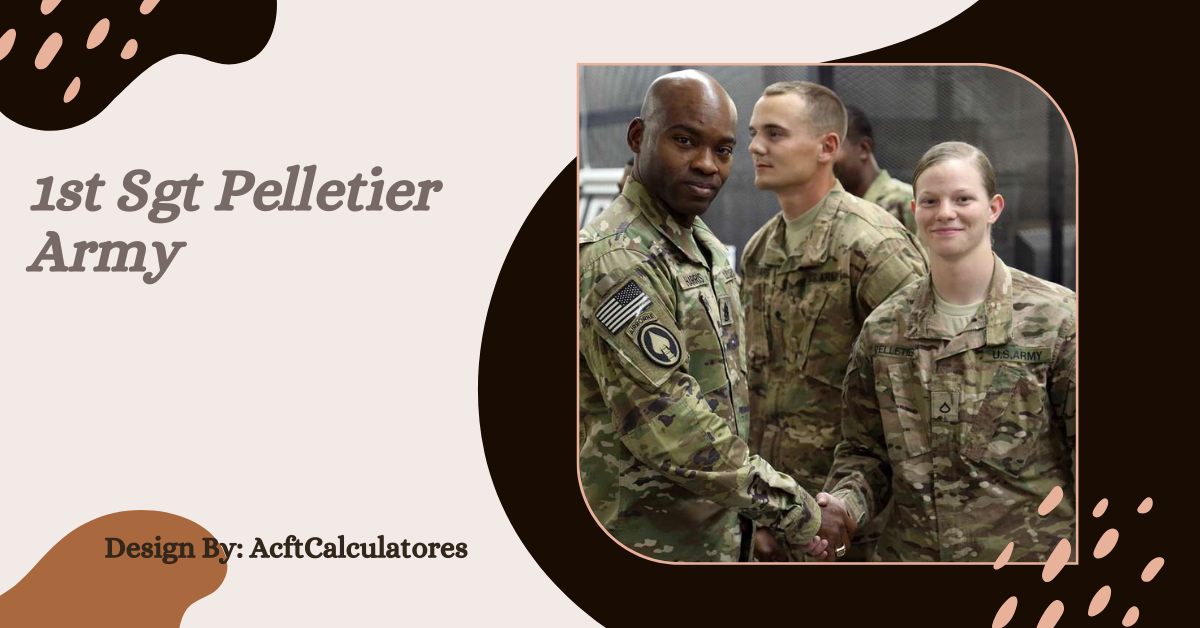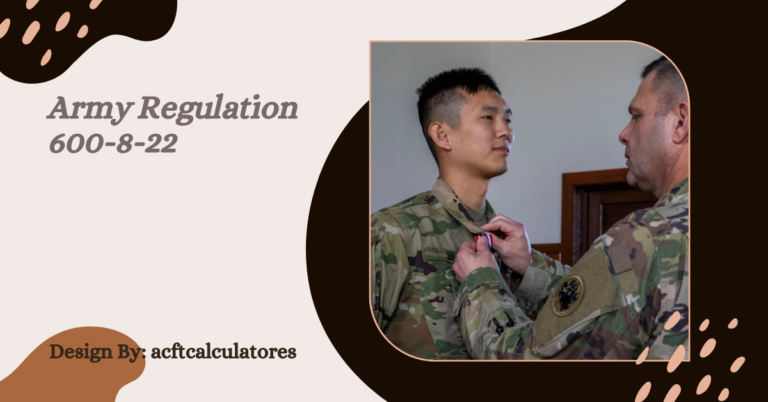1st Sgt Pelletier Army – A Key Leader in Military Service!
1st Sgt Pelletier exemplifies leadership, focusing on readiness, mentorship, discipline, and fostering a positive unit culture.
In this article, we will explore the role of a First Sergeant in the Army, the responsibilities that come with this leadership position, and how individuals like 1st Sgt Pelletier contribute to the Army’s mission.
Table of Contents
Understanding the Role of a 1st Sgt in the Army:
A First Sergeant (1st Sgt) is one of the most senior non-commissioned officers (NCOs) in the U.S. Army. They are key leaders in their unit and serve as the primary advisor to the commanding officer on all matters related to enlisted soldiers. The 1st Sgt’s role is multifaceted and includes both administrative and operational responsibilities.
Key Responsibilities of a 1st Sgt:
- Leadership and Mentorship: 1st Sgt Pelletier, like all First Sergeants, is responsible for leading by example and ensuring that soldiers are well-trained, disciplined, and prepared for any task. They mentor junior NCOs and enlisted soldiers, providing guidance on both professional and personal development.
- Unit Readiness: Ensuring that the unit is always prepared for missions is a central duty. 1st Sgt Pelletier would oversee training schedules, equipment maintenance, and readiness assessments, ensuring that every soldier is ready for deployment at a moment’s notice.
- Discipline and Standards: 1st Sgt Pelletier would enforce Army regulations and standards, ensuring that all soldiers adhere to the Army values and ethical guidelines. Discipline is a cornerstone of military life, and as a 1st Sgt, they play a pivotal role in maintaining it.
- Administrative Duties: First Sergeants are also responsible for managing personnel records, coordinating leave schedules, and handling various administrative tasks that ensure the smooth functioning of the unit.
The Importance of First Sergeants in the Army:
1st Sgt Pelletier Army and other First Sergeants are essential to the day-to-day operations of military units. They serve as the bridge between officers and enlisted soldiers, translating the directives of command into actionable tasks.
The leadership of a First Sergeant ensures that the morale, welfare, and discipline of the soldiers under their command are maintained to the highest standards.
The Key Impact of First Sergeants:
- Bridge Between Command and Soldiers: First Sergeants play an integral role in communicating the commander’s intent and ensuring that it is understood and executed by all members of the unit.
- Fostering a Positive Unit Culture: Through mentorship and leadership, a First Sergeant helps to shape the culture of a unit. Their leadership ensures that soldiers are motivated, engaged, and committed to the success of their missions.
- Problem-Solving and Crisis Management: Whether resolving conflicts between soldiers, addressing concerns, or dealing with operational challenges, First Sergeants are often the go-to person for problem-solving at the unit level.
1st Sgt Pelletier’s Leadership and Contributions:
While specifics about 1st Sgt Pelletier may vary depending on their individual career, one can infer that their role would mirror the responsibilities outlined above. As a First Sergeant, Pelletier would have honed their leadership skills over years of military service, earning the respect of their peers and subordinates alike.
1st Sgt Pelletier’s Leadership Attributes:
- Commitment to Soldiers: First Sergeants are dedicated to the well-being of their soldiers, offering guidance and support to ensure that they thrive both professionally and personally.
- Adaptability: Given the evolving nature of military operations, a First Sergeant like Pelletier must be adaptable, capable of leading soldiers through changing environments and situations.
- Experience and Knowledge: Having spent years in the Army, 1st Sgt Pelletier would possess extensive knowledge of Army policies, regulations, and operational procedures. This experience allows them to mentor soldiers and contribute to the development of future leaders.
The Path to Becoming a First Sergeant:
Becoming a First Sergeant is the culmination of many years of dedicated service and leadership. Individuals like 1st Sgt Pelletier would have followed a rigorous career path, working through the ranks of the enlisted corps and gaining the experience necessary to take on this senior NCO position.
Steps to Becoming a First Sergeant:
- Serving as a Sergeant Major or Senior NCO: First Sergeants typically come from the ranks of experienced NCOs, having served as Sergeants, Staff Sergeants, and Sergeants First Class.
- Demonstrating Leadership Skills: Becoming a First Sergeant requires proving one’s ability to lead, mentor, and manage soldiers. This includes overseeing training, ensuring unit readiness, and fostering morale.
- Completion of Required Training: Before assuming the role, potential First Sergeants must attend courses that focus on leadership, management, and Army regulations.
FAQ’s
1. What is the role of a First Sergeant in the Army?
A First Sergeant is responsible for leadership, mentorship, maintaining unit readiness, discipline, and administrative duties.
2. What are the key responsibilities of 1st Sgt Pelletier?
1st Sgt Pelletier ensures soldiers are well-trained, maintains operational readiness, and enforces Army standards and discipline.
3. How do First Sergeants contribute to unit culture?
They foster a positive culture by mentoring soldiers, encouraging motivation, and ensuring the unit’s success.
4. What makes 1st Sgt Pelletier a key leader in the Army?
With years of experience, Pelletier provides mentorship, adapts to evolving situations, and contributes to the development of future leaders.
5. How does 1st Sgt Pelletier ensure soldier readiness?
Pelletier oversees training schedules, equipment maintenance, and readiness assessments to ensure soldiers are mission-ready.
6. What is the path to becoming a First Sergeant?
The path includes years of service, leadership experience, and completion of required training to gain knowledge in Army policies.
7. What leadership skills are required for a First Sergeant?
First Sergeants must demonstrate the ability to lead, mentor, manage soldiers, and ensure the readiness of their unit.
8. Why are First Sergeants crucial to the success of the Army?
First Sergeants are essential for maintaining discipline, operational readiness, and soldier morale, all of which contribute to the Army’s success.
Conclusion
1st Sgt Pelletier Army represents the epitome of leadership within the United States Army. As a First Sergeant, they play a critical role in ensuring the effectiveness, discipline, and morale of their unit. From providing mentorship to maintaining operational readiness, First Sergeants like Pelletier are essential to the success of the Army’s mission. Whether managing day-to-day operations, leading soldiers through complex challenges, or ensuring their unit is always mission-ready, the dedication and leadership of First Sergeants are key to the strength and success of the U.S. Army.







